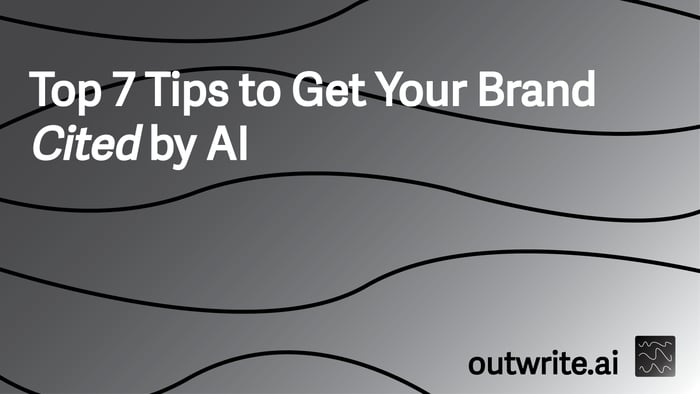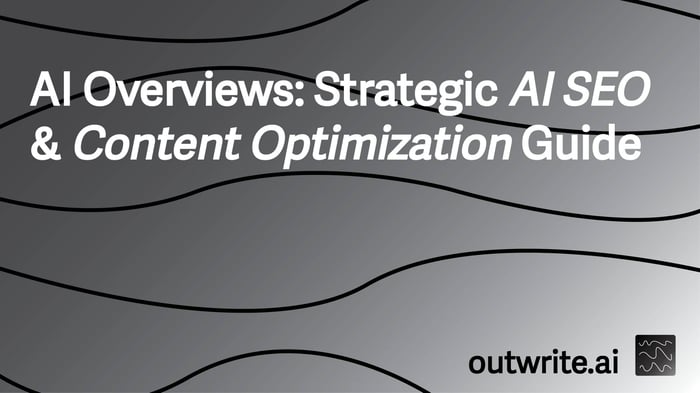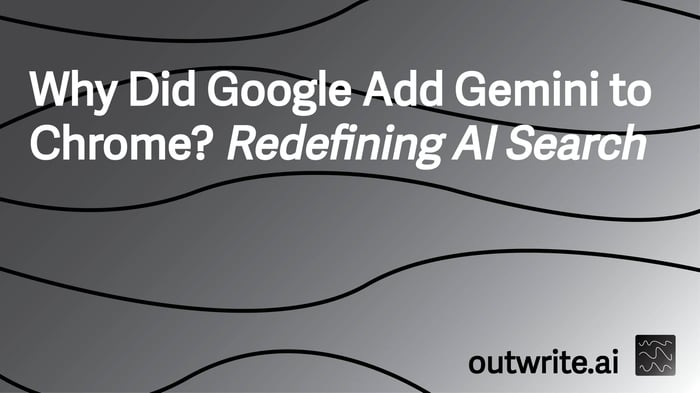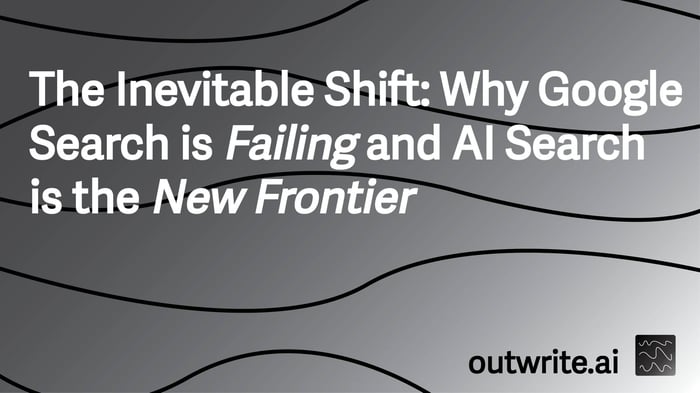Table of Contents
- Introduction: The Imperative of AI Citation
- 1. Publish Original Research & Data
- 2. Use Structured Data Markup (Schema.org)
- 3. Participate in Community Discussions Authentically
- 4. Tailor Citation Strategy to Customer Journey Stages
- 5. Partner with Authoritative Publishers or Platforms
- 6. Monitor and Optimize AI Citation Performance Continuously
- 7. Leverage AI Technologies Creatively
- AI SEO Best Practices for Brand Visibility
- Comprehensive Implementation Guide
- Frequently Asked Questions (FAQ)
- Conclusion: Mastering AI Citation for Future Growth
Introduction: The Imperative of AI Citation
In the rapidly evolving digital landscape, the visibility of your brand increasingly hinges on its ability to be recognized and cited by artificial intelligence (AI) systems. As AI technology trends continue to reshape how information is discovered and consumed, understanding how to optimize your content for AI citation is no longer optional—it is a critical component of any robust digital strategy. AI-driven platforms, from search engines to conversational AI, are becoming the primary gatekeepers of information, making brand authority AI a paramount concern for businesses aiming to maintain relevance and reach.
The imperative for brands to get cited by AI is underscored by the explosive growth and pervasive adoption of AI technology. By 2025, an astounding 88% of marketers are projected to use AI daily, with 93% leveraging it to generate content faster. This widespread integration means that AI is not just a tool for internal operations but a fundamental layer through which brand narratives are disseminated and validated. This guide will delve into seven essential tips, providing actionable AI technology best practices and AI technology solutions to ensure your brand stands out in an AI-first world.
1. Publish Original Research & Data
AI systems are designed to identify and prioritize unique, authoritative, and novel information. Therefore, publishing original research and proprietary data is one of the most potent strategies to get your brand cited by AI. AI algorithms value content that offers fresh insights, statistics, and perspectives not readily available elsewhere. This approach positions your brand as a thought leader and a primary source of credible information, making it a preferred citation for AI models seeking to provide comprehensive and accurate answers.
Why Original Research Matters to AI
AI models, particularly large language models (LLMs), are trained on vast datasets. To avoid generating redundant or unoriginal content, they are programmed to seek out unique contributions. When your brand produces original research, it creates a distinct data point that AI can confidently reference. This not only enhances your brand's authority but also improves the likelihood of your content being featured in AI-generated summaries, answers, and recommendations. Content with original statistics and research findings receives up to 27% more AI citations, according to a Pressranger AI Strategy Report.
How to Implement Original Research
- Conduct Industry-Specific Surveys: Design and execute surveys within your niche to gather unique data points on consumer behavior, market trends, or industry challenges.
- Publish Proprietary Studies: Undertake in-depth analyses of internal data or conduct experiments that yield exclusive insights relevant to your audience.
- Create Data Visualizations and Infographics: Present your original data in easily digestible formats that are highly shareable and citeable.
- Release White Papers and Reports: Compile your findings into comprehensive documents that serve as authoritative resources.
Case Study: Unilever's AI Content Intelligence
Unilever, a global consumer goods giant, leveraged AI-powered content intelligence through its U-Studio platform to optimize campaigns. By analyzing unique cultural and emotional data, Unilever was able to move beyond guesswork, creating content that resonated deeply with specific audiences. This data-driven approach, rooted in original insights derived from AI analysis, allowed them to tailor messaging, improve cultural relevance, and ultimately drive conversions. While not directly about external AI citation, it demonstrates the power of using unique data to inform content, a principle AI systems value for citation. This strategic use of unique data helps brands like Unilever gain a competitive edge, as 87% of organizations believe AI will give them a competitive edge.
| Strategy Element | AI Citation Benefit | Example Outcome | Supporting Statistic |
|---|---|---|---|
| Unique Data Collection | Establishes brand as primary source | Increased organic visibility in AI summaries | Up to 27% more AI citations |
| Thought Leadership | Builds domain authority and trust | Higher ranking for specific queries | 81% use AI for faster insights |
| Data Visualization | Enhances scannability and shareability | More frequent inclusion in AI-generated content | 93% leverage AI for content generation |
2. Use Structured Data Markup (Schema.org)
Structured data markup, particularly using Schema.org vocabulary, is fundamental for enhancing AI's understanding of your content. While AI models are advanced, they still rely on explicit signals to accurately interpret the entities, relationships, and context within your web pages. Implementing structured data acts as a translator, providing AI with a clear, machine-readable format of your content's meaning. This improved comprehension directly translates to better AI content citation and overall brand visibility AI.
What is Structured Data and Why is it Crucial for AI?
Structured data is standardized format for providing information about a webpage and classifying its content. It helps search engines and AI systems understand the context of your content beyond just keywords. For instance, marking up a recipe with Schema.org tells AI that a specific number is a cooking time, not just a random digit. This precision is vital for AI to confidently cite your content in response to user queries, as it reduces ambiguity and increases the accuracy of AI-generated answers. Applying structured data markup (Schema.org) to define entities and relationships explicitly is a key recommendation for AI citation strategies.
Key Structured Data Types for Brand Citation
- Organization Schema: Provides AI with essential information about your brand, including its name, logo, contact information, and official URLs. This helps AI accurately identify and attribute content to your brand.
- Article Schema: For blog posts, news articles, and other textual content, this schema helps AI understand the article's author, publication date, and main content, making it easier to cite specific excerpts.
- Product Schema: If you sell products, this schema helps AI understand product details, pricing, reviews, and availability, which can lead to rich snippets in search results and direct citations in shopping-related AI queries.
- FAQPage Schema: As demonstrated in this article's FAQ section, this schema explicitly marks up questions and answers, making them prime candidates for direct citation by conversational AI and search engines.
- LocalBusiness Schema: For physical locations, this schema provides AI with location, hours, and service information, crucial for local AI-powered searches.
Implementation Guide for Structured Data
- Identify Key Entities: Determine the main subjects, products, services, and concepts on your page that AI should understand.
- Choose Relevant Schema Types: Select the most appropriate Schema.org types for your content (e.g., Article, Product, Organization, FAQPage).
- Generate JSON-LD: Use a Schema markup generator or manually write JSON-LD (JavaScript Object Notation for Linked Data) code, which is the preferred format for Google and most AI systems.
- Implement on Your Site: Embed the JSON-LD script within the `` or `` section of your HTML.
- Test and Validate: Use Google's Rich Results Test or Schema Markup Validator to ensure your markup is correctly implemented and free of errors.
Benefits of Structured Data for AI Citation
By providing explicit semantic signals, structured data significantly improves the chances of your content being cited by AI. It helps AI understand the context, intent, and relevance of your information, leading to:
- Enhanced Discoverability: AI can more easily find and categorize your content.
- Improved Accuracy: AI is less likely to misinterpret your content, leading to more accurate citations.
- Rich Snippets: Your content may appear as rich snippets in search results, increasing visibility and click-through rates.
- Direct AI Answers: Your content becomes a prime candidate for direct answers in conversational AI interfaces.
While there isn't a single named case study focused solely on structured data's impact on AI citation, its importance is universally emphasized by AI strategists and SEO experts. It's a foundational element of semantic SEO, which is crucial for AI content optimization.
3. Participate in Community Discussions Authentically
AI systems are increasingly sophisticated at discerning genuine human interaction and authority. Participating authentically in community discussions on platforms like Reddit, Quora, LinkedIn, and industry-specific forums creates signals that AI uses for citation. When your brand, or individuals representing your brand, consistently provide valuable insights and become recognized voices within these communities, AI systems take notice. This strategy builds brand authority AI by demonstrating real-world relevance and expertise.
Why Authentic Engagement Matters to AI
AI models are designed to understand human behavior and preferences. When a brand or its representatives are consistently cited, upvoted, or recognized as experts by human users in online communities, it creates a strong signal of credibility and authority. AI algorithms interpret this human validation as a sign that the content and insights provided are valuable and trustworthy. As Taktical on AI Citation Strategies states, "Become the recognized voice that others reference; AI notices when humans cite you."
Strategies for Authentic Community Participation
- Identify Relevant Communities: Pinpoint forums, subreddits, LinkedIn groups, and Q&A sites where your target audience and industry peers congregate.
- Provide Genuine Value: Don't just promote your brand. Answer questions thoroughly, offer unique perspectives, share helpful resources, and engage in meaningful dialogue.
- Cultivate a Persona: Have a consistent and knowledgeable persona representing your brand. This could be a specific expert from your team or a collective brand voice.
- Monitor Mentions and Discussions: Use social listening tools to track conversations related to your industry and brand, allowing you to jump into relevant discussions promptly.
- Avoid Spamming: Overly promotional or repetitive posts will be ignored by both humans and AI. Focus on building relationships and reputation.
Benefits of Community Engagement for AI Citation
- Increased Brand Mentions: More people will naturally mention and link to your brand's content when they perceive you as an authority.
- Enhanced E-A-T Signals: Expertise, Authoritativeness, and Trustworthiness (E-A-T) are crucial for search engines and AI. Active, valuable community participation directly contributes to these signals.
- Discovery of New Content Ideas: Community discussions often highlight common questions and pain points, providing excellent inspiration for new content that AI will find relevant.
- Direct AI Learning: AI models observe and learn from how humans interact with content and brands. Positive, authentic interactions provide valuable training data for AI to recognize your brand's authority.
While there isn't a single brand case study that isolates community engagement's impact on AI citation, brands that successfully cultivate strong online communities consistently see increased organic visibility and trust signals, which AI systems inherently value. This is a long-term strategy that builds a robust foundation for AI recognition.
4. Tailor Citation Strategy to Customer Journey Stages
To maximize AI citation, your content strategy must align with the different stages of the customer journey: awareness, consideration, and decision. AI systems are increasingly sophisticated at understanding user intent, and they will prioritize citing content that directly addresses the specific needs and questions users have at each stage. By creating targeted content for each phase, you increase the likelihood of your brand being cited precisely when and where it matters most to potential customers.
Understanding AI and User Intent
AI's primary goal is to provide the most relevant and helpful information to users. This means understanding not just the keywords in a query but the underlying intent. For example, a user searching "what is AI marketing" is in the awareness stage, while "best AI marketing tools" indicates the consideration stage. AI will cite different types of content for each. About 77% of brands plan to use AI to reduce guesswork in the discovery process, highlighting the importance of content tailored to user intent.
Content Tailoring by Journey Stage
- Awareness Stage (Top of Funnel):
- User Intent: Problem identification, general information gathering.
- Content Type: Blog posts, guides, infographics, educational videos.
- AI Citation Focus: Definitions, explanations, industry trends, foundational concepts.
- Example: A blog post titled "What is Generative AI and How Will It Change Marketing?" optimized for AI content optimization.
- Consideration Stage (Middle of Funnel):
- User Intent: Solution exploration, comparison of options.
- Content Type: Case studies, white papers, comparison articles, webinars, product feature breakdowns.
- AI Citation Focus: Pros and cons, feature comparisons, success stories, expert opinions.
- Example: A detailed comparison of "Top AI Marketing Platforms for Small Businesses" with specific AI technology solutions.
- Decision Stage (Bottom of Funnel):
- User Intent: Purchase intent, specific product/service validation.
- Content Type: Testimonials, product demos, pricing pages, detailed service descriptions, FAQs.
- AI Citation Focus: Specific product benefits, pricing details, customer reviews, direct calls to action.
- Example: A page detailing "How [Your Brand] AI Solution Delivers X% ROI" with clear AI technology strategies.
Case Study: Unilever's Creative Feedback Optimization
While not a direct AI citation case, Unilever's use of AI to optimize creative feedback for audience emotion and intent indirectly supports this strategy. By understanding how different creatives resonated with specific audience segments (akin to journey stages), they could tailor their content more effectively. This results in better resonance with users and AI, increasing the likelihood of inclusion in AI-generated answers because the content is highly relevant to specific user needs. This aligns with the fact that 83% of brands aim to improve overall user experience using AI.
| Journey Stage | User Intent | Content Type Examples | AI Citation Goal |
|---|---|---|---|
| Awareness | Problem identification, general learning | Blog posts, guides, infographics | Definitions, trends, foundational knowledge |
| Consideration | Solution exploration, comparison | Case studies, comparison articles, webinars | Feature comparisons, success stories, expert insights |
| Decision | Purchase intent, validation | Testimonials, pricing, demos, FAQs | Specific product benefits, reviews, direct answers |
5. Partner with Authoritative Publishers or Platforms
In the age of AI, content licensing agreements are becoming increasingly important. AI models, especially large language models, are trained on vast datasets, and many content creators are now seeking compensation or attribution for their work. Partnering with authoritative publishers or platforms that have established AI content licensing agreements can significantly increase the likelihood of your brand being cited by AI. These partnerships provide a direct, trusted conduit for your content to be ingested and referenced by AI systems.
The Rise of AI Content Licensing
As AI models become more prevalent, the debate around content ownership and fair use is intensifying. Major content providers are negotiating deals with AI developers to license their data for training and output. When your brand's content is published through or syndicated by a platform with such an agreement, it gains a preferential pathway into AI knowledge bases. This is a strategic recommendation, as it ensures your content is not only accessible but also explicitly sanctioned for AI use, bypassing potential future restrictions on unverified content.
Benefits of Strategic Partnerships for AI Citation
- Preferential AI Citation: Content from licensed sources is often prioritized by AI models due to its verified origin and quality.
- Increased Reach and Trust: Associating with established, reputable publishers enhances your brand's credibility in the eyes of both human users and AI.
- Direct Data Ingestion: Licensed content is often directly fed into AI training datasets, ensuring deep integration and recognition.
- Mitigation of Attribution Issues: Licensing agreements often include provisions for proper attribution, ensuring your brand is correctly cited.
How to Identify and Pursue Partnerships
- Research Industry Leaders: Identify major news outlets, industry-specific publications, and content platforms that are known for high-quality, authoritative content in your niche.
- Investigate Licensing Agreements: Look for public announcements or reports about these publishers entering into content licensing deals with major AI developers (e.g., OpenAI, Google, Microsoft).
- Propose Collaborative Content: Approach these publishers with proposals for guest posts, sponsored content, joint research, or syndication agreements that feature your brand's expertise and insights.
- Focus on Value Exchange: Highlight how your brand's unique data, insights, or solutions can enrich their content offerings, making it a mutually beneficial partnership.
Example: Strategic Recommendation
While specific public examples of brands directly leveraging AI content licensing partnerships for citation are emerging, the strategic recommendation is clear: "Consider partnerships with publishers that have AI content licensing agreements." This is a forward-thinking AI technology strategy that anticipates the future of content distribution and citation. It's about ensuring your content is part of the "trusted network" that AI explicitly draws from, rather than hoping it's discovered organically. This proactive approach is crucial given the global AI marketing industry is valued at $47.32 billion in 2025, growing at a CAGR of 36.6% to $107.5 billion by 2028.
6. Monitor and Optimize AI Citation Performance Continuously
Achieving AI citation is not a one-time effort; it requires continuous monitoring and optimization. Just as you track traditional SEO metrics, you must implement systems to identify when and how your brand is being referenced by AI. This data-driven approach allows you to refine your content strategies, double down on what works, and adapt to evolving AI algorithms. Effective monitoring is a cornerstone of AI technology best practices, ensuring your brand maintains its visibility and authority.
Why Continuous Monitoring is Essential
AI models are constantly learning and updating. What works today for AI citation might change tomorrow. Without a robust monitoring system, you're operating in the dark. Tracking your AI citation performance allows you to:
- Identify Successful Content: Pinpoint which pieces of content are most frequently cited by AI and why.
- Understand AI's Preference: Gain insights into the types of information, formats, and contexts AI prefers to cite.
- Detect Attribution Issues: Ensure your brand is correctly attributed when cited by AI.
- Adapt to Algorithm Changes: Quickly adjust your strategies in response to updates in AI models or their citation mechanisms.
- Measure ROI: Quantify the impact of your AI citation efforts on brand visibility and business objectives.
Tools and Techniques for Monitoring AI Citation
- AI Citation Tracking Tools: Specialized tools are emerging that can help track when and where your brand is referenced by AI-generated content or conversational AI responses.
- Semantic Search Analytics: Monitor how your content performs for semantic queries and long-tail keywords that AI often uses to synthesize answers.
- Brand Mention Tracking: Use tools to track mentions of your brand across the web, including in AI-generated content or summaries.
- Google Search Console: Pay attention to how your content appears in rich snippets, featured snippets, and "People Also Ask" sections, as these are often precursors to direct AI citations.
- Direct AI Interaction: Regularly query popular AI models (e.g., ChatGPT, Bard) with questions relevant to your industry and see if your brand or content is cited.
Case Study: Dunkin' Donuts' AI-Driven Marketing
Dunkin' Donuts provides an excellent example of continuous optimization through AI. They utilized an AI-driven platform (HubKonnect) to adjust marketing tactics based on regional consumer data. This allowed them to create consolidated marketing calendars tailored to specific locations and objectives. Michael Koch, HubKonnect CEO, noted, "At the push of a button, we created consolidated marketing tactics by location and objective." This continuous feedback loop and optimization led to a 6–10% sustained ROI and a 57% increase in app downloads through AI-optimized content. While not solely focused on AI citation, it illustrates the power of using AI to monitor performance and refine strategies for better engagement and visibility.
| Metric Category | Specific Metrics | Why it Matters for AI Citation | Example Impact |
|---|---|---|---|
| Visibility | Featured Snippet Rate, "People Also Ask" presence | Indicates content is highly relevant for AI answers | Increased direct answers from AI |
| Attribution | Brand mentions in AI summaries, source links | Ensures proper credit and brand recognition | Improved brand authority and trust signals |
| Engagement | Click-through rate from AI-generated content | Shows AI-cited content drives user action | Higher traffic from AI-driven discovery |
7. Leverage AI Technologies Creatively
To truly excel in getting your brand cited by AI, you must move beyond simply optimizing for AI and start leveraging AI technologies creatively in your own content creation and marketing efforts. This involves using AI capabilities such as predictive analytics, content intelligence, and generative AI to produce novel, highly engaging, and AI-trustworthy content. When your brand itself is a pioneer in using AI, it sends a powerful signal to other AI systems that your content is cutting-edge and relevant, making it a prime candidate for citation.
AI as a Creative Partner
The generative AI market is valued at $62.75 billion in 2025 and projected to grow to $356.05 billion by 2030, underscoring its transformative potential. Brands that embrace this technology not only streamline their processes but also create unique content that stands out. This includes using AI for:
- Predictive Analytics: To anticipate market trends and consumer behavior, allowing you to create content that addresses future needs.
- Content Intelligence: To analyze vast datasets of successful content, identifying patterns and elements that resonate with audiences and AI.
- Generative AI: To assist in brainstorming, drafting, and even creating entire pieces of content, from text to images and video.
Case Study: Volkswagen's Predictive AI Targeting
Volkswagen demonstrated how AI can power smarter, precision marketing. By using predictive AI to target high-intent buyers, they focused their marketing spend where it mattered most. This resulted in improved conversion rates and lowered cost per lead. As Young Urban Project noted, "Volkswagen showed AI can quietly power smarter marketing, just by being more selective and data-driven." This intelligent use of AI to optimize targeting makes their content inherently more relevant and effective, which AI systems recognize as valuable.
Case Study: Heinz's AI-Generated Imagery Campaign
Heinz's "A.I. Ketchup" campaign is a prime example of leveraging generative AI creatively. They used AI to generate images based on the prompt "ketchup," and the results overwhelmingly depicted Heinz ketchup. This innovative campaign generated renewed brand engagement and talkability. By using AI in such a novel and impactful way, Heinz not only created viral content but also subtly reinforced its brand dominance, making it a memorable and citeable example for AI systems discussing marketing innovation or brand recognition.
How to Integrate Creative AI Use
- AI-Assisted Content Creation: Use tools like outwrite.ai to generate outlines, draft sections, or brainstorm ideas for articles, social media posts, and ad copy.
- Personalized Content at Scale: Employ AI to personalize content experiences for individual users, improving engagement and making your content more valuable for AI to cite for specific user contexts.
- AI-Powered Trend Spotting: Utilize AI to analyze vast amounts of data to identify emerging trends and create timely, relevant content before competitors.
- Experiment with Generative Art/Media: Explore AI tools for creating unique visuals, audio, or even video content that captures attention and sparks conversation.
By actively using AI technology solutions in your creative processes, you demonstrate a forward-thinking approach that AI systems are programmed to value and, consequently, cite more frequently. The increasing use of generative AI in marketing and sales, which rose from 65% to 71% from early 2024 to 2025 among organizations surveyed by McKinsey, highlights this growing reliance on AI tools for brand-related content and decision-making.
AI SEO Best Practices for Brand Visibility
Beyond the seven core tips, a holistic approach to AI SEO is crucial for sustained brand visibility and citation. AI SEO goes beyond traditional keyword optimization, focusing on semantic understanding, user intent, and comprehensive content. It's about creating content that AI finds inherently valuable, trustworthy, and easy to process. This section outlines additional AI technology best practices to solidify your brand's position in the AI-driven ecosystem.
Embrace Semantic SEO
Traditional SEO often focused on exact keyword matching. AI SEO, however, emphasizes semantic SEO, which is about understanding the meaning and context of words and phrases. AI models don't just look for keywords; they look for comprehensive answers to user queries. This means:
- Covering Topics in Depth: Provide thorough, well-researched content that addresses all facets of a topic.
- Using Related Concepts and Entities: Naturally integrate synonyms, related terms, and entities that provide context to your main topic.
- Answering User Questions Directly: Structure your content to directly answer common questions related to your topic, often using Q&A formats.
Prioritize E-A-T (Expertise, Authoritativeness, Trustworthiness)
E-A-T is a critical factor for Google's algorithms and, by extension, for AI systems. AI models are trained to identify and prioritize content from credible sources. To enhance your E-A-T:
- Showcase Author Credentials: Clearly state the expertise of your content creators (e.g., "Authored by [Author Name], [Author Title]").
- Cite Reputable Sources: Back up claims with data from authoritative sources, linking out to them where appropriate.
- Build Brand Reputation: Foster positive online reviews, media mentions, and industry awards.
- Maintain Content Accuracy: Regularly update content to ensure its accuracy and relevance.
Optimize for Voice Search and Conversational AI
As voice assistants and conversational AI become more prevalent, optimizing your content for these platforms is paramount. This involves:
- Using Natural Language: Write in a conversational tone that mimics how people speak.
- Answering Questions Directly: Provide concise, direct answers to common questions, ideal for AI to extract as snippets.
- Focusing on Long-Tail Keywords: Voice queries are often longer and more specific than typed queries.
Content Freshness and Regular Updates
AI systems value up-to-date information. Regularly updating your content signals to AI that your brand is a reliable source of current and relevant information. This includes:
- Reviewing and Updating Existing Content: Periodically refresh statistics, examples, and best practices in your older articles.
- Publishing New Content Consistently: Maintain a regular publishing schedule to demonstrate ongoing activity and relevance.
- Responding to Trends: Create timely content that addresses emerging trends and news in your industry.
These AI SEO strategies, combined with the seven tips, form a comprehensive AI technology guide for maximizing your brand's citation potential in the AI era. The global AI marketing industry's rapid growth, with a compound annual growth rate (CAGR) of 36.6% to $107.5 billion by 2028, underscores the urgency and importance of adopting these AI technology strategies.
Comprehensive Implementation Guide
Implementing the strategies to get your brand cited by AI requires a systematic approach. This guide provides actionable steps and considerations for integrating these tips into your existing content and marketing workflows. Success in AI content citation hinges on meticulous planning, consistent execution, and continuous adaptation.
Step-by-Step Implementation Plan
- Audit Existing Content for AI Readiness:
- Identify Gaps: What original research could you produce based on your existing data or industry insights?
- Check Structured Data: Use tools like Google's Rich Results Test to see which pages already have structured data and identify opportunities for more.
- Assess E-A-T: Evaluate your current content for author credibility, source citations, and overall trustworthiness.
- Develop an Original Research Pipeline:
- Brainstorm Topics: What unique data or perspectives can your brand offer?
- Plan Data Collection: Design surveys, conduct interviews, or analyze proprietary data.
- Create a Publication Schedule: Integrate research reports, white papers, and data-driven articles into your content calendar.
- Implement and Optimize Structured Data Across Your Site:
- Prioritize Key Pages: Start with your most important pages (homepage, product pages, core articles, FAQs).
- Use JSON-LD: This is the recommended format for most structured data types.
- Validate Regularly: Re-test your structured data after any site updates or content changes.
- Formulate a Community Engagement Strategy:
- Select Platforms: Focus on 2-3 platforms where your target audience is most active.
- Assign Experts: Designate team members to actively participate and contribute valuable insights.
- Set Guidelines: Ensure authentic, non-promotional engagement.
- Map Content to the Customer Journey:
- Content Inventory: Categorize your existing content by customer journey stage.
- Identify Content Gaps: Create new content to fill missing stages or address specific user intents.
- Optimize Existing Content: Refine older content to better align with specific journey stages.
- Explore Strategic Partnerships:
- Research Potential Partners: Identify authoritative publishers with AI licensing agreements.
- Develop Outreach Pitches: Highlight the mutual benefits of collaboration and content syndication.
- Start Small: Begin with guest posts or co-authored content to build relationships.
- Set Up AI Citation Monitoring and Reporting:
- Choose Tools: Invest in brand mention trackers, semantic SEO tools, and potentially specialized AI citation monitoring solutions.
- Define KPIs: Track metrics like AI-generated snippet appearances, direct AI answers, and attributed mentions.
- Regular Reviews: Schedule monthly or quarterly reviews to analyze performance and adjust strategies.
- Integrate AI into Your Content Workflow:
- Experiment with Generative AI Tools: Use tools like outwrite.ai for brainstorming, drafting, and content optimization.
- Leverage AI for Insights: Use AI-powered analytics to understand content performance and identify new opportunities.
- Train Your Team: Educate your content creators on how to effectively use AI tools and optimize for AI citation.
Key Considerations for Success
- Consistency is Key: AI citation is a long-term game. Consistent effort across all strategies will yield the best results.
- Quality Over Quantity: Focus on producing high-quality, authoritative content rather than simply churning out large volumes.
- Adaptability: The AI landscape is constantly changing. Be prepared to adapt your strategies based on new insights and algorithm updates.
- Cross-Functional Collaboration: Success requires collaboration between SEO, content, marketing, and even product teams.
- Invest in the Right Tools: Utilize AI-powered platforms and analytics tools to streamline processes and gain deeper insights. For instance, platforms like outwrite.ai can be instrumental in creating and optimizing content for AI visibility.
By following this comprehensive implementation guide, your brand can systematically build its presence and authority in the AI-driven digital ecosystem, ensuring it is not just seen but actively cited by AI. The economic scale of the AI marketing industry, projected to reach $107.5 billion by 2028, signifies that these are not just fleeting trends but fundamental shifts in how brands will achieve visibility and growth.
Frequently Asked Questions (FAQ)
How do I make my brand's content more discoverable by AI?
To enhance AI discoverability, focus on structured data, semantic SEO, and creating original, authoritative content. Ensure your content directly answers common questions and is regularly updated for freshness. This helps AI understand and prioritize your information.
What are the primary benefits of getting my brand cited by AI?
The primary benefits include increased brand visibility, enhanced authority and trust, higher organic traffic from AI-driven searches, and improved brand recognition in an AI-first world. It positions your brand as a go-to source for reliable information.
Why should I invest in original research for AI citation?
You should invest in original research because AI prioritizes unique, novel insights and data not found elsewhere. This establishes your brand as a primary, authoritative source, increasing the likelihood of direct AI citation and enhancing your thought leadership. Content with original statistics receives up to 27% more AI citations.
When is the best time to start implementing AI citation strategies?
The best time to start is now. AI's role in content discovery is rapidly expanding, with 88% of marketers using AI daily by 2025. Early adoption of AI technology strategies provides a significant competitive advantage and ensures your brand is prepared for future shifts in digital visibility.
How does structured data (Schema.org) help AI cite my brand?
Structured data provides explicit, machine-readable information about your content, helping AI accurately understand entities, relationships, and context. This clarity reduces ambiguity, making it easier for AI to confidently extract and cite specific information from your pages.
Can AI tools help me create content that gets cited by other AIs?
Yes, AI tools like outwrite.ai can assist in creating content optimized for AI citation. They can help with semantic optimization, identifying relevant topics, generating structured data, and ensuring content aligns with AI's preferences for clarity and authority. The generative AI market is projected to reach $356.05 billion by 2030, highlighting the power of these tools.
What role does E-A-T play in AI content citation?
E-A-T (Expertise, Authoritativeness, Trustworthiness) is crucial. AI models prioritize content from highly credible sources. Demonstrating strong E-A-T through author credentials, reputable citations, and positive brand reputation signals to AI that your content is reliable and worthy of citation.
How often should I monitor my brand's AI citation performance?
You should monitor your brand's AI citation performance continuously, ideally on a monthly or quarterly basis. AI algorithms evolve rapidly, and consistent monitoring allows you to quickly adapt your strategies, identify successful content, and address any attribution issues.
Is it better to focus on a few key AI citation strategies or all of them?
While all strategies contribute, a balanced approach is best. Start by mastering foundational elements like structured data and original research, then gradually integrate community engagement, customer journey alignment, and strategic partnerships. Continuous monitoring will help you prioritize where to focus your efforts for maximum impact.
How can I ensure my brand is correctly attributed when cited by AI?
Ensure correct attribution by using Organization Schema markup, consistently branding your content, and pursuing partnerships with publishers that have clear AI content licensing agreements. Regularly monitoring AI-generated content for mentions of your brand can also help identify and address misattributions.
What is the difference between traditional SEO and AI SEO?
Traditional SEO often focuses on keywords and backlinks, while AI SEO emphasizes semantic understanding, user intent, and comprehensive, authoritative content. AI SEO is about creating content that AI finds inherently valuable and easy to process, moving beyond simple keyword matching to contextual relevance.
How does AI personalize user experience, and how does that affect brand citation?
AI personalizes user experience by analyzing individual preferences and behavior to deliver tailored content. This affects brand citation by making highly relevant and personalized content more likely to be cited for specific user queries, as 83% of brands aim to improve user experience with AI. Brands that create adaptable, personalized content increase their citation potential.
What are the risks of ignoring AI citation strategies?
Ignoring AI citation strategies risks diminished brand visibility, reduced organic traffic, loss of authority to competitors, and becoming irrelevant in an AI-dominated information landscape. As AI becomes the primary interface for information discovery, brands not cited by AI will struggle to reach their audience.
How can I measure the ROI of my AI citation efforts?
Measure ROI by tracking increases in organic traffic from AI-driven snippets, direct mentions of your brand by AI, improvements in brand authority metrics, and ultimately, conversions linked to AI-influenced discovery. Case studies like Dunkin's 6-10% sustained ROI from AI-optimized content demonstrate measurable impact.
Conclusion: Mastering AI Citation for Future Growth
The journey to getting your brand cited by AI is multifaceted, requiring a strategic blend of technical optimization, content excellence, and proactive engagement. As AI technology continues to evolve and permeate every aspect of digital interaction, the ability of your brand to be recognized and referenced by these intelligent systems will directly correlate with its future growth and market relevance. The data is clear: AI is not just a trend but a fundamental shift, with the global AI marketing industry projected to reach $107.5 billion by 2028.
By consistently applying the seven tips—publishing original research, leveraging structured data, engaging authentically in communities, tailoring content to the customer journey, seeking authoritative partnerships, continuously monitoring performance, and creatively using AI technologies—your brand can establish itself as a trusted and indispensable source of information for AI. This proactive approach to AI content optimization and brand authority AI is not merely about adapting to the present but about strategically positioning your brand for enduring success in the AI-first future. Embracing these AI technology solutions and strategies today is the definitive path to ensuring your brand's enduring visibility and influence.
Authored by Aidan Buckley, Subject matter expert at outwrite.ai.





